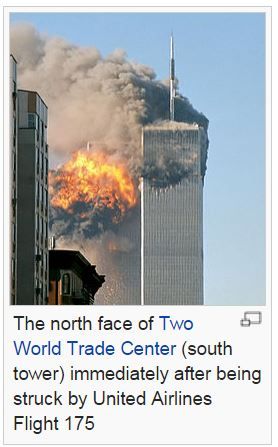Bill rectifies 9/11 scholarship program
by James Poulos | September 8, 2014 2:16 pm
 It took California legislators until this year’s session to restore a scholarship program created in the wake of the 9/11 terrorist attack in 2001.
It took California legislators until this year’s session to restore a scholarship program created in the wake of the 9/11 terrorist attack in 2001.
The embarrassing delay came in the wake of years of funding abuses, according to a report finally filed by the State Auditor. The auditor confirmed what was first uncovered by the Associated Press. In a statement, state Senator Mark DeSaulnier, D-Concord, explained[1] the outrageous findings:
“The state collected millions of dollars from selling 9/11 memorial license plates, but only a small fraction of the money intended for the scholarship program actually went to scholarships, in large part because a state agency failed to properly notify California families of the scholarship fund in time to apply.”
With the auditor’s report officially on the books, legislators were at last able to rectify the situation. DeSaulnier joined with state Sen. Ted Gaines, R-Roseville, to co-author SB384[2], which was swiftly passed and then signed into law by Gov. Jerry Brown. Classified as an urgency statute, the law took effect immediately upon signature.
A legislative do-over
Its changes addressed several key problems created by the California state government’s failure to properly implement the original scholarship program.
According[3] to the preexisting law, the California Victim Compensation and Government Claims Board was required to identify those eligible for memorial plate-funded scholarships, and inform them accordingly, by July 1, 2003. Those eligible then had exactly two years to formally accept scholarship funding. Furthermore, according to the original law, the state’s Antiterrorism Fund would receive any funds remaining after the later of either the beneficiary’s 30th birthday or July 1, 2015.
SB384 altered those rules in two ways, then added an additional key provision. First, July 1, 2015 became the new deadline to compile California’s list of eligible persons and notify them.
Second, the deadlines for participation and use of funds shifted forward as well. Eligible persons were required to conclude participation agreements by July 1, 2016. Funds were set to revert to the Antiterrorism Fund after the later of the beneficiary’s 30th birthday or July 1, 2026.
On top of the changes to the scholarship program’s calendar, the law raised the bar for the California Victim Compensation and Government Claims Board. Specifically, that body was required to use “various methods” to “identify, and confirm by documentation, all persons who are eligible for scholarships under the program” — including “media outreach and communication with the Special Master of the federal September 11th Victim Compensation Fund.” The addition of these terms was meant to ensure that no eligible Californians fell through the cracks this time around.
Public outcry
That mission had become all the more important given how many eligible students were not connected up with the program during the period of its initial offering. As reported[4] by AP, the program “ran from 2002 to 2005 and was funded by those who bought and renewed more than 200,000 of the memorial license plates.”
Raising some $16.5 million, the AP continued, the effort was intended to yield $2.5 million in scholarship cash for victims’ kin — 15 percent of the total. Instead, by the time the AP investigated the program, “just $21,381 had been distributed to the children and spouses of the three dozen California residents killed in the crashes” of the four hijacked airplanes, which were bound for California.
Remarkably, that investigation resulted in a published AP story over two years ago, in May 2012. Then, the AP revealed[5] that some $3 million of the license plate fund was “raided by Gov. Jerry Brown and his predecessor, Arnold Schwarzenegger, to plug the state’s budget deficit.”
Even more egregiously, millions of dollars raised for the fund were actually spent “on budget items with little relation to direct threats of terrorism, including livestock diseases and workplace safety.”
AP also reported the California Department of Motor Vehicles had continued to advertise the license plates “as helping the children of Sept. 11 victims, even though the state stopped funding the scholarship program” in 2005. At the time of the AP investigation, the fund was still pulling in $1.5 million every year.
The investigation triggered a number of government actions. The California DMV dropped the references to the scholarship fund that remained on its description of the 9/11 plates. Brown immediately ordered an audit of California’s entire specialty license plate program.
And finally — only now with SB384 — have the results of the state’s audits been brought to fruition.
- explained: http://sd07.senate.ca.gov/news/2014-08-22-governor-signs-bill-reinstate-911-memorial-scholarship-program
- SB384: http://www.leginfo.ca.gov/cgi-bin/postquery?bill_number=sb_384&sess=CUR&house=B&author=gaines_%3Cgaines%3E
- According: http://www.legtrack.com/bill.html?bill=201320140SB384
- reported: http://www.contracostatimes.com/news/ci_26393278/relatives-californians-who-died-9-11-attacks-get
- revealed: http://www.huffingtonpost.com/2012/05/29/california-911-memorial-fund-_n_1552589.html
Source URL: https://calwatchdog.com/2014/09/08/bill-rectifies-911-scholarship-program/